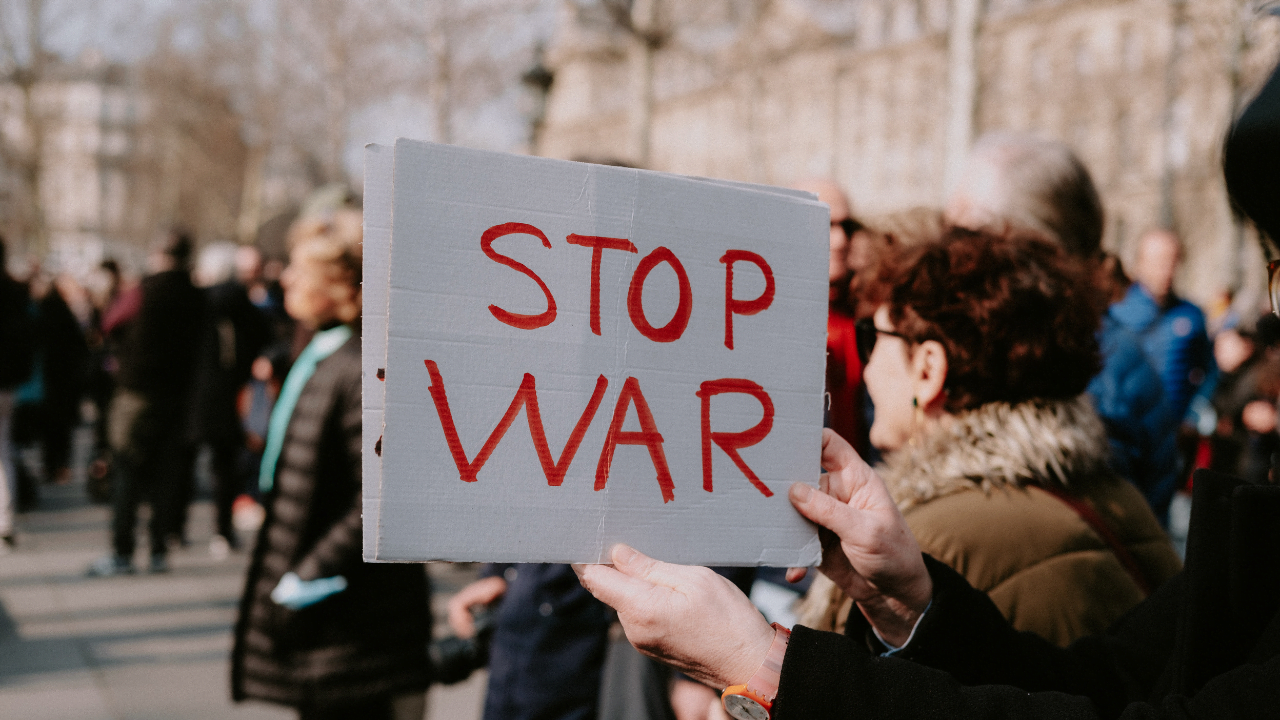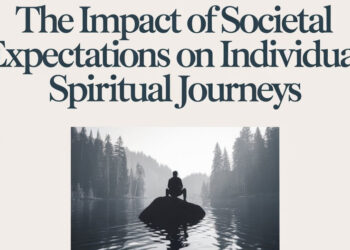No products in the cart.
The Impact of War on Individuals’ Spiritual Beliefs
This post contains paid and/or affiliate links. I make a small commission at no extra cost to you. Please see our Privacy Policy.
War profoundly impacts individuals’ lives, affecting various aspects, including their religious and spiritual beliefs. Researchers from Harvard University, Guangzhou University, and the University of Macau have conducted studies exploring the relationship between war and religiosity. These studies have revealed interesting findings by analyzing data from war-affected regions such as Sierra Leone, Uganda, and Tajikistan.
The studies indicate that individuals who have experienced the intense violence of war are more likely to join or participate in religious groups and practice religious rituals. This increase in religiosity persists even years after the conflict has ended. Notably, this trend holds for both Muslims and Christians, highlighting the universality of its impact.
However, it is essential to acknowledge that this more significant engagement with religious activities can lead to parochial cooperation and contribute to cycles of violent conflict. Thus, it becomes imperative to delve deeper into the relationship between war and religion and understand its positive and negative consequences.
In the upcoming sections, we will explore the link between war and religion, the impact of war on religious participation, the role of religion in post-war environments, and the implications for understanding the complex relationship between religion and war. Through these discussions, we aim to gain insight into the effects of war on individuals’ spiritual beliefs and religiosity and shed light on the path toward peace and reconciliation.
The Link Between War and Religion
The relationship between war and religion has long been a topic of interest. While religious beliefs and rituals have been shown to facilitate social solidarity and in-group cooperation, less attention has been paid to whether the experience of war can increase religious participation.
The studies mentioned earlier suggest that war can indeed lead to a greater engagement with religious groups and rituals, especially among those who have been more intensely affected by the violence of war. This may be due to the role of religion in providing a psychological buffer against worries about future conflicts and a sense of belonging to a group.
However, the studies also highlight the importance of religious leaders promoting compassionate values and peaceful resolutions to conflicts to tip the cycle toward peacemaking instead of perpetuating violence.
The impact of war on religious participation
War has a profound impact on individuals’ religious participation, as evidenced by the findings of recent studies. These studies examined the experiences of individuals who had been profoundly affected by war, such as losing a loved one, suffering injuries, or witnessing abductions. The results revealed that such individuals were more likely to engage in religious groups and rituals, even years after the conflict had ended.
In Sierra Leone, exposure to war increased the likelihood of turning to religion by 12%. Similarly, in Uganda, the likelihood of religious participation rose by 14%, and in Tajikistan, 41%. These figures highlight the long-lasting influence of war on individuals’ religious practices and beliefs.
The impact of war on religious participation can be attributed to several factors. Firstly, the experience of war often brings about a heightened sense of mortality and the fragility of life, leading individuals to seek solace and meaning in religious teachings. Secondly, religious communities can provide social support and a sense of belonging in the face of trauma and loss. Finally, religion may serve as a psychological coping mechanism, helping individuals navigate the emotional aftermath of war.
The link between war and increased religious participation sheds light on the complex relationship between conflict and spirituality. It underscores the importance of understanding the role of religion in post-war environments and the potential implications for peacebuilding efforts.
The role of religion in post-war environments
Religion plays a crucial role in post-war environments, providing a psychological buffer for individuals who have experienced the trauma of war. It offers a sense of belonging to a community and helps individuals cope with the psychological effects of their experiences.
The studies we discussed indicate that even years after the end of a conflict, religious practice still holds significant importance in the lives of those affected by war. This suggests that religion serves as a support system, offering individuals a source of meaning, hope, and comfort in the aftermath of war.
In post-war environments, religion is a unifying force, bringing people together and fostering community. It provides a platform for individuals to connect with others who have shared similar experiences, creating a support network that can be instrumental in rebuilding lives and communities.
Additionally, religion offers solace and guidance in overcoming the challenges and uncertainties in the post-war period. It provides individuals with a moral compass, helping them navigate the complexities of rebuilding, forgiveness, and reconciliation.
Moreover, religious institutions often play a vital role in providing humanitarian aid and support to war-affected individuals. They engage in activities such as providing food, shelter, healthcare, and education, helping to alleviate the suffering and address the socio-economic consequences of war.
In summary, religion holds immense significance in post-war environments. It serves as a psychological buffer, offers a sense of belonging, and provides individuals with a support system to aid their recovery and rebuilding process. Furthermore, religious institutions play a crucial role in providing humanitarian assistance and addressing the socio-economic consequences of war.
Religion and Social Cohesion in War-Affected Communities
The impact of war on communities extends beyond individual beliefs and rituals, as it also influences the social dynamics and cohesive bonds within these societies. The studies discussed in this article shed light on how religion fosters social cohesion, specifically in war-affected communities.
One significant finding is that individuals who have experienced the violence of war often display increased religiosity, seeking solace and support within their religious communities. This heightened religious commitment leads to tighter-knit religious groups, characterized by a strong emphasis on cooperation and mutual support within one’s religious group or village.
These closely-knit religious communities can contribute to nation-building and the formation of supportive social networks in post-war environments. They provide individuals with a sense of belonging and shared values, helping them heal from the trauma of war and rebuild their lives. Through religious rituals and practices, these communities foster a collective identity and a sense of purpose, strengthening social bonds and facilitating rebuilding and recovery.
However, it is essential to recognize that there is a potential downside to this increased social cohesion. The risk lies in the possibility of these tightly-knit religious groups engaging in parochial cooperation, which may result in the exclusion of outsiders and the perpetuation of cycles of violent conflict. This highlights the need for religious leaders and communities to promote inclusive values and actively work towards peacebuilding and intergroup cooperation.
In summary, religion is crucial in fostering social cohesion within war-affected communities. It can provide a support system and sense of belonging, aiding healing and recovery. While the increased religious participation in these communities is beneficial for collective well-being, ensuring that this cohesion is inclusive and oriented towards peaceful resolutions is essential. By harnessing the positive aspects of religion, communities can work together toward building a more harmonious and resilient post-war society.
Implications for Understanding the Relationship between Religion and War
The findings of these studies have important implications for understanding the relationship between religion and war. War significantly impacts individuals’ religious beliefs and practices, leading to increased religious participation. This suggests that the war experience can profoundly affect one’s spiritual journey and shape one’s religious identity.
The Need for Further Research and Analysis
These studies highlight the necessity for further research and analysis of the role of religion in conflict resolution and peacebuilding efforts. By understanding how religion intersects with war, we can develop more effective strategies to promote peace and mitigate the negative consequences of armed conflicts.
Promoting Compassionate Values and Intergroup Cooperation
The implication of these findings underscores the importance of promoting compassionate values and fostering intergroup cooperation in war-affected regions. While war may increase religiosity, it is crucial to guide this increase towards inclusive and peaceful ideals rather than reinforcing parochial cooperation that could perpetuate cycles of violence.
Recognizing Religion as a Catalyst for Change
Understanding the relationship between religion and war enables us to recognize the transformative potential of religious beliefs and practices. By leveraging the influence of religion, we can harness its power to bring about positive social change, inspire acts of compassion, and ultimately contribute to the peaceful resolution of conflicts.
Building a Path Towards Peace
By acknowledging the impact of war on individuals’ religious beliefs and practices, we can refine our approaches to post-war environments. Religion should be considered as an asset in the healing and reconciliation process, providing a support system and a source of meaning and hope for war-affected individuals.
Continuing the Dialogue
The implications drawn from these studies emphasize the importance of an ongoing dialogue among scholars, policymakers, religious leaders, and communities. By sharing knowledge and experiences, we can work collectively to navigate the complex relationship between religion and war and develop effective conflict resolution and peacebuilding strategies.
Conclusion
The studies discussed in this article provide valuable insights into the impact of war on individuals’ spiritual beliefs and religiosity. We see that war has a profound effect on individuals and can lead to increased religious participation. This can serve as a psychological buffer and a source of social cohesion in post-war environments, helping individuals cope with the traumatic experiences they have endured.
However, it is important to recognize the potential risks associated with this increase in religiosity. The studies highlight the possibility of parochial cooperation and the potential for cycles of violent conflict. This calls for a deeper understanding of the complex relationship between war and religion.
By understanding this relationship, we can work towards fostering peace and mitigating the negative consequences of war on individuals’ spiritual well-being. Promoting compassionate values and encouraging intergroup cooperation is crucial, ensuring that religious beliefs are harnessed for positive outcomes in post-war societies.
FAQ
Can war have an impact on individuals’ spiritual beliefs?
Yes, studies have shown that war can have a profound effect on individuals’ spiritual beliefs and religiosity.
Is there a link between war and religion?
Yes, research has indicated that war can lead to increased religious participation.
Does the experience of war affect religious participation?
Yes, individuals who have experienced the intense violence of war are more likely to participate in religious groups and rituals.
What role does religion play in post-war environments?
Religion can serve as a psychological buffer and provide individuals with a sense of belonging and hope in the aftermath of war.
Does war impact social cohesion in war-affected communities?
The increased religiosity observed among individuals who have experienced war can foster social cohesion within their own religious groups or villages.
What are the implications of the relationship between religion and war?
Further research is needed to understand the role of religion in conflict resolution and peacebuilding efforts.
How does war affect individuals’ spiritual well-being?
War can have both positive and negative effects on individuals’ spiritual well-being, highlighting the need for a comprehensive understanding of the relationship between war and religion.













